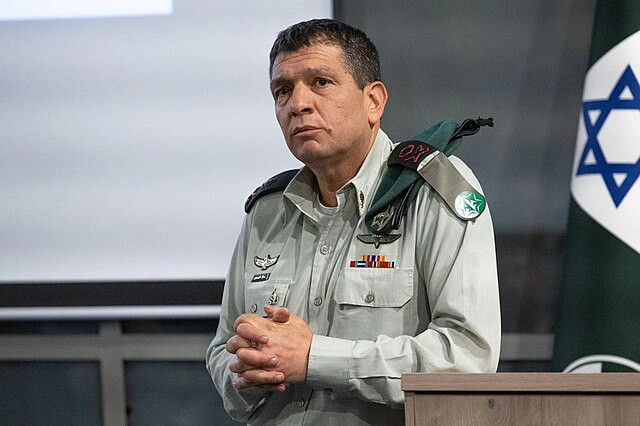Maj. Gen. Aharon Haliva, the head of Israel's military intelligence directorate, has resigned after failing to prevent Hamas' unprecedented Oct. 7 attack, the deadliest terror attack in Israel's history, the Israel Defense Forces (IDF) announced on Monday. Haliva's resignation comes nearly six and a half months after Hamas terrorists invaded Israel, rampaging through Israeli communities, killing 1,200 people - mostly civilians - and taking roughly 250 hostages back into Gaza.
In his resignation letter, Haliva wrote, "The intelligence directorate under my command did not live up to the task we were entrusted with. I carry that black day with me ever since, day after day, night after night. I will carry the horrible pain of the war with me forever." The decision to resign was made with the approval of Israeli Minister of Defense Yoav Gallant, and the military chief of staff accepted Haliva's request, thanking him for his 38 years of service.
Haliva's resignation could set the stage for additional fallout from Israel's top security brass over Hamas' attack, which triggered a war in Gaza between the Jewish state and Hamas. The war, now in its seventh month, has killed more than 34,000 Palestinians in Gaza, according to the local health ministry, with at least two-thirds of the dead being children and women. The fighting has devastated Gaza's two largest cities and driven 80% of the territory's population to flee to other parts of the besieged coastal enclave, sparking a humanitarian catastrophe that has drawn warnings of imminent famine.
Shortly after the war began, Haliva publicly shouldered blame as the head of the military department responsible for providing the government and the military with intelligence warnings and daily alerts. Other military and security leaders are also reportedly expected to resign in response to the intelligence failures that led to the Oct. 7 attack.
However, the timing of these resignations has been unclear, as Israel remains engaged in multiple conflicts, battling Hamas in Gaza, Hezbollah in Lebanon and Syria, and experiencing heightened tensions with Iran following recent direct attacks between the two enemies. Some military experts have argued that resignations at this time could be interpreted as a sign of weakness and are irresponsible while Israel is fighting on multiple fronts.
Israeli Prime Minister Benjamin Netanyahu, who has faced growing protests demanding his resignation and early elections, has indicated that he will not step down. While Netanyahu has said he will answer tough questions about his role in the Oct. 7 attack, he has stopped short of outright acknowledging direct responsibility for allowing the assault to unfold.
Opposition leader Yair Lapid welcomed Haliva's resignation, calling it "justified and dignified" and suggesting that Prime Minister Netanyahu should follow suit. The unprecedented attack on Oct. 7 shattered Israelis' sense of faith in their military, which is seen by most Jews as one of the country's most trustworthy institutions. Haliva's resignation could help restore some of that trust.
Beyond the devastation in Gaza, the war has sent shockwaves through the region, with tensions rocking the Israeli-occupied West Bank and cities and towns within Israel itself. On Monday, Israeli police reported that a car had slammed into pedestrians in Jerusalem, wounding three lightly, and security camera footage showed two men exiting the car with a rifle before fleeing the scene. The two men were later arrested by police.






